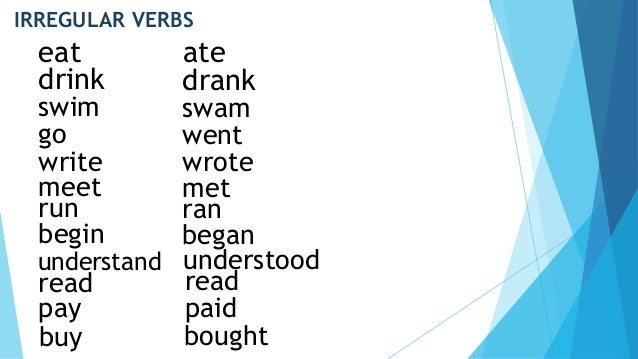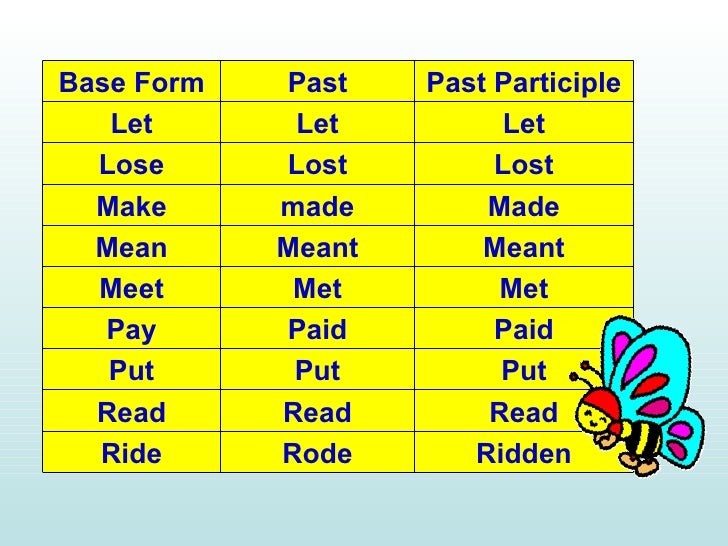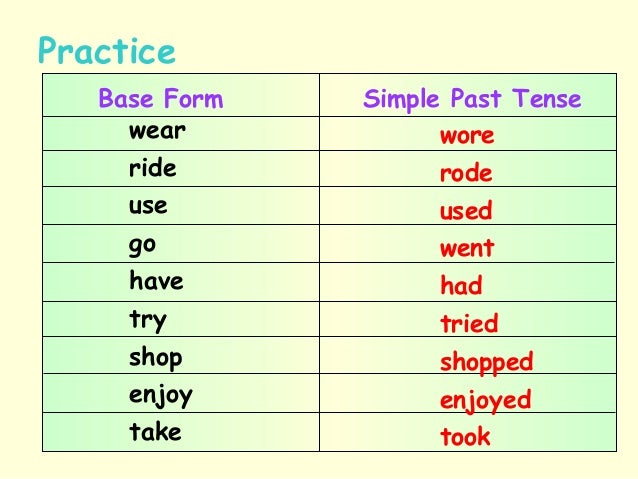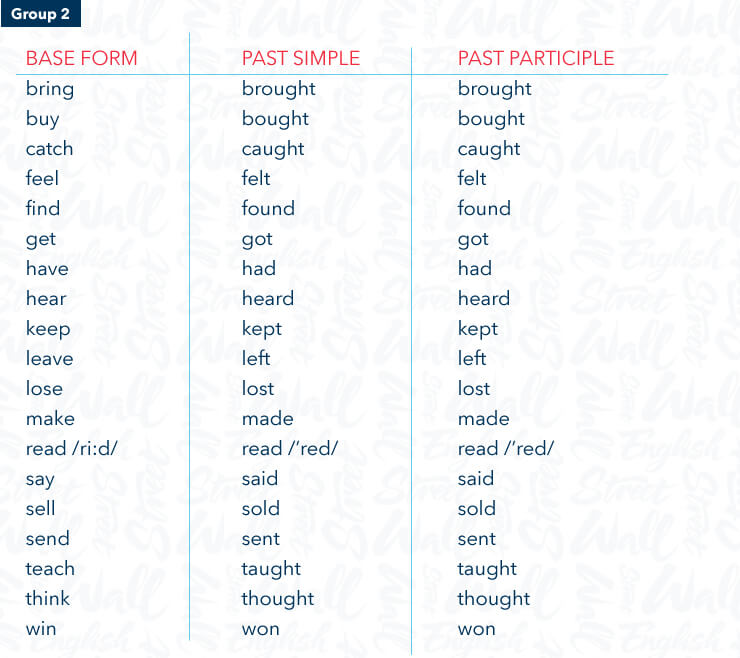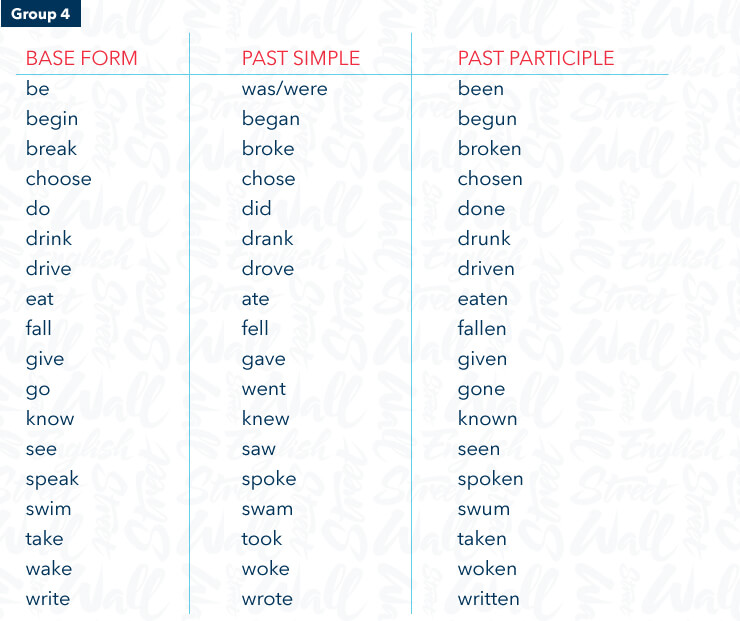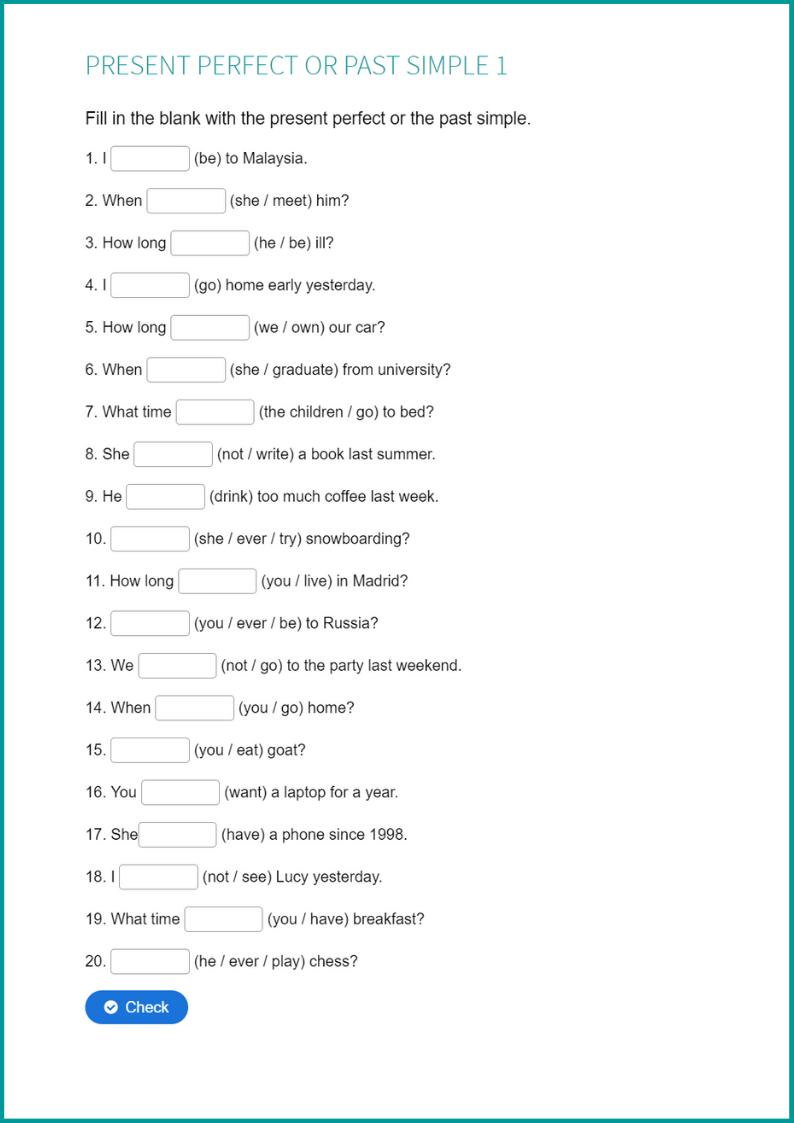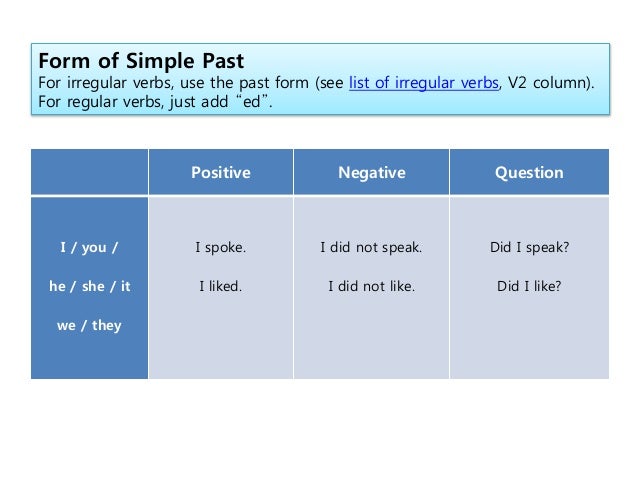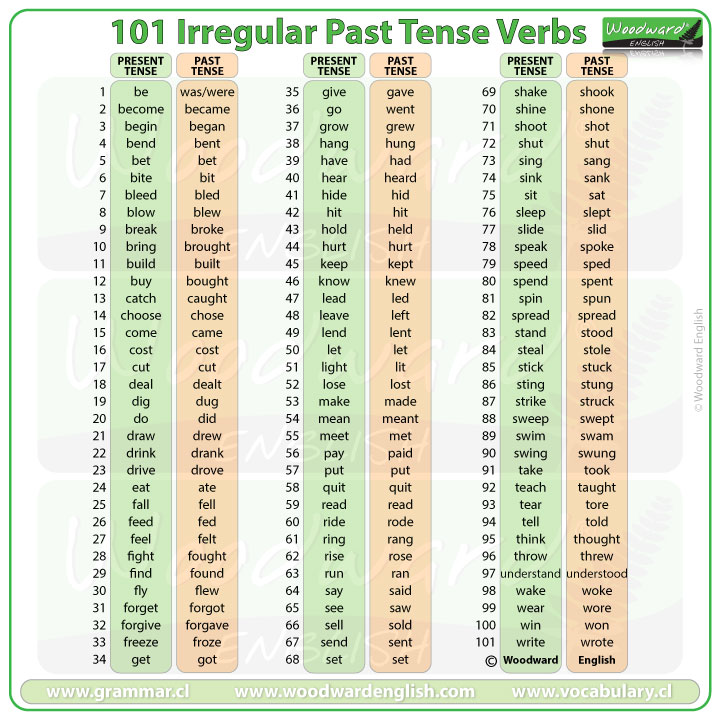Simple Past Form Von Meet
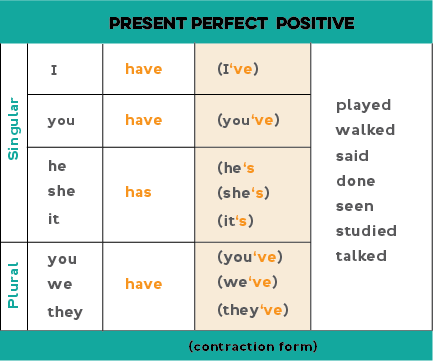
Unlock unbolt and unclose antonyms.
Simple past form von meet. We went to spain for our holidays. Konjugation verb auf englisch meet. The past tense of meet is met obsolete. This is a reference page for meet verb forms in present past and participle tenses.
Something that happened once in the past. Transitive when you meet someone you get together with them. Join and encounter i want to meet you. They got home very late last night.
For regular verbs add ed to the root form of the verb or just d if the root form already ends in an e. The simple past tense of some irregular verbs looks exactly like the root form. Close shut lock and bolt i will open the door for our guests to prepare for business. I met my wife in 1983.
How to formulate the simple past. Irregular verb definition for to meet including the base form past simple past participle 3rd person singular present participle gerund. The third person singular simple present indicative form of meet is meets. He meets me at home every afternoon.
Bab la arrow drop down bab la online dictionaries vocabulary conjugation grammar toggle navigation. Translate meet in context with examples of use and definition. Partizip präteritum indikativ unregelmäßige verben. To meet konjugation einfaches konjugieren englischer verben mit dem bab la verb konjugator.
Conjugate the english verb meet. Play played type typed listen listened push pushed love loved. We swam a lot while we were on holiday. Find conjugation of meet.
The past participle of meet is met obsolete. To move something to the side to allow entrance. We use the past tense to talk about. She and her friends meet every day.
When i was a boy i walked a mile to school every day. Close close up lock and lock up she opened the store having a hole or opening not closed. For irregular verbs things get more complicated. The present participle of meet is meeting.
Something that happened several times in the past. I met you at the store intransitive when people meet they get together with one another. Separate you and i have met. Indicative past tense participle present perfect gerund conjugation models and irregular verbs.
